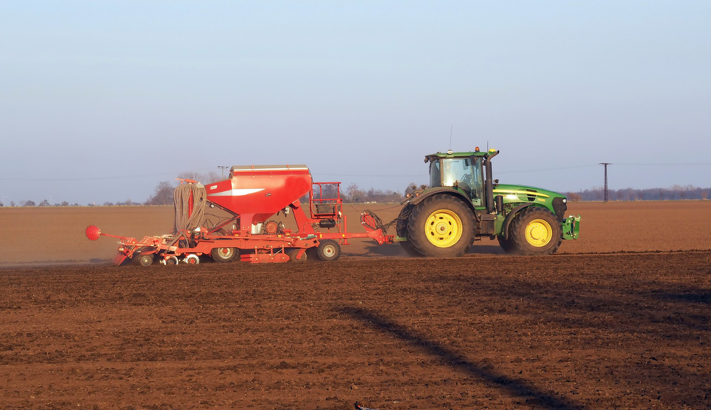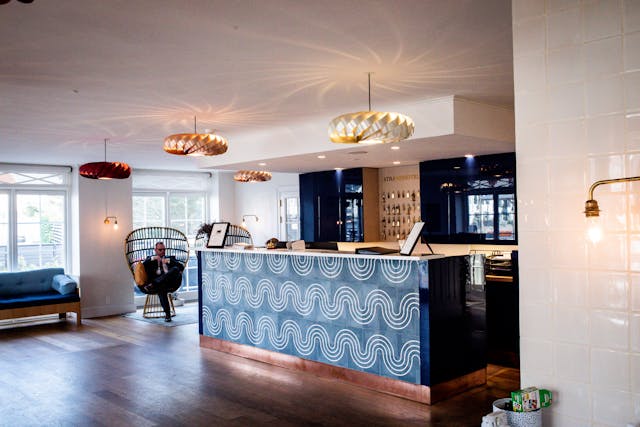“In March the farmer harnesses the horses.
He prepares his fields and meadows.
He ploughs the ground, he harrows and sows
and stirs his hands early in the morning and late.”
Everyone knows these first lines of a well-known German children’s song. But what does this song have to do with revenue management?
Every year in spring, a farmer plans the cultivation of his fields and takes important factors into account:
- What does the consumer want?
- What are the competitors doing?
- What are they planting?
- What are my costs?
- What are the risks, e.g. due to weather, crop failure?
- What is the seasonality?
- What is the quality of the soil?
- What is the quality of the produce?
- How is the distribution done?
After the harvest, the farmer is under time pressure. He has to make sure that the harvested plants and fruits are sold as soon as possible, as they are perishable and the quality of the product decreases with each passing day until it can no longer be sold. In addition, the farmer has costs incurred until the harvest, but no income.
The hotelier also has to ensure that his capacities do not “spoil”, i.e. that they are optimally utilised, because the next day the entire capacities are available for sale again.
Many hoteliers and revenue managers are currently facing a field to be worked on. Historical records have lost their significance after two years of pandemic. So how do I order my “field”, my hotel? What will the demand be in the coming weeks and months? For which products do I achieve which prices? How will the market and competitors react?
It’s a new start! An analysis of one’s own strengths and weaknesses in connection with the opportunities and risks of the market provides a good starting point.
What does the guest want?
ITB Berlin and Statista Q presented the developments and trends for the travel year 2022 at the ITB Berlin Convention. The essential core topics are:
Travellers want more flexibility. Since the beginning of the pandemic, flexibility has been a condition for tourism. Guests are willing to pay a higher price for more flexibility. What does it mean for my cancellation and booking conditions?
German destinations are becoming increasingly popular with young people. Statista’s February 2022 Global Consumer Survey (GCS) shows that domestic tourism is more popular than ever. Next year, more than 38 percent of travellers under the age of 30 plan to travel in Germany, an increase of almost 25 percent.
Workation is the new trend. Alongside holidays and sightseeing, work and the ability to work from anywhere has emerged as a reason to travel. A new type of customer has emerged who has completely new needs and whose behaviour differs from that of business travellers, potentially creating a new market. What products/services does my hotel offer for these target groups?
What is the competition doing?
A regular analysis of the individual competitors per segment and their offers is imperative and should go beyond mere price comparisons on the internet. What advantages does my hotel offer over each competitor?
What are my costs?
Rising energy and food prices as well as the increase of the minimum wage are only a few price drivers that a hotel has to consider in its own pricing. What impact do the additional costs have on my price floors for rooms and event capacities? Which processes have already been standardised and can thus be automated in order to increase efficiency?
What risks is my hotel exposed to?
The hotel business is a cyclical business and strongly dependent on the socio- and macroeconomic environment. While in the past MICE (Meetings, Incentives, Conventions & Events) and (international) business travel were more or less reliable drivers of demand for many hotels, we are currently moving into uncharted territory. In addition, demand continues to be influenced by government directives, natural disasters and wars around the world. This forces hoteliers to constantly adjust their planning and to “forecast on sight”. What does the current forecast planning look like? Which variables are taken into account and in which weighting? How can what-if scenarios help in planning?
How dependent is my hotel on individual seasons?
An analysis of the pattern of individual days of the week and periods in relation to business mix helps to understand demand and booking behaviour. What is the value of demand? How far in advance do the individual segments book within the different periods and at what value currently?
What is the quality of my hotel location and accessibility?
You cannot change the physical location of the hotel. It helps to identify and communicate the advantages of the location, the infrastructure and opportunities around it. What advantages does your location offer over the competition? What added value does the location of your hotel have for the guest and how much are they willing to pay for it?
What is the quality of my products and services?
It is not only the hardware that plays an important role here, but especially the way the services are provided. How do I manage to inspire my guests with which offer along the entire customer journey? Positive reviews have an impact on demand and willingness to pay. Integrating guest reviews into the pricing strategy is imperative. Does every new trend and promotion fit my product and positioning?
How is the distribution done?
The desire for independence from third-party providers such as online travel agencies (OTAs) and an increase in direct bookings via the own website is great. What is the current distribution strategy? How high are the distribution costs per channel? Are direct bookings via my own website really cheaper or do system and transaction fees as well as manual process costs due to lacking interfaces exceed the commission of the OTAs?






